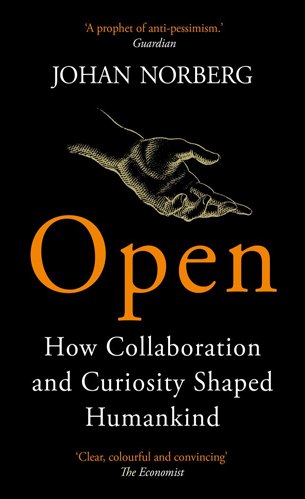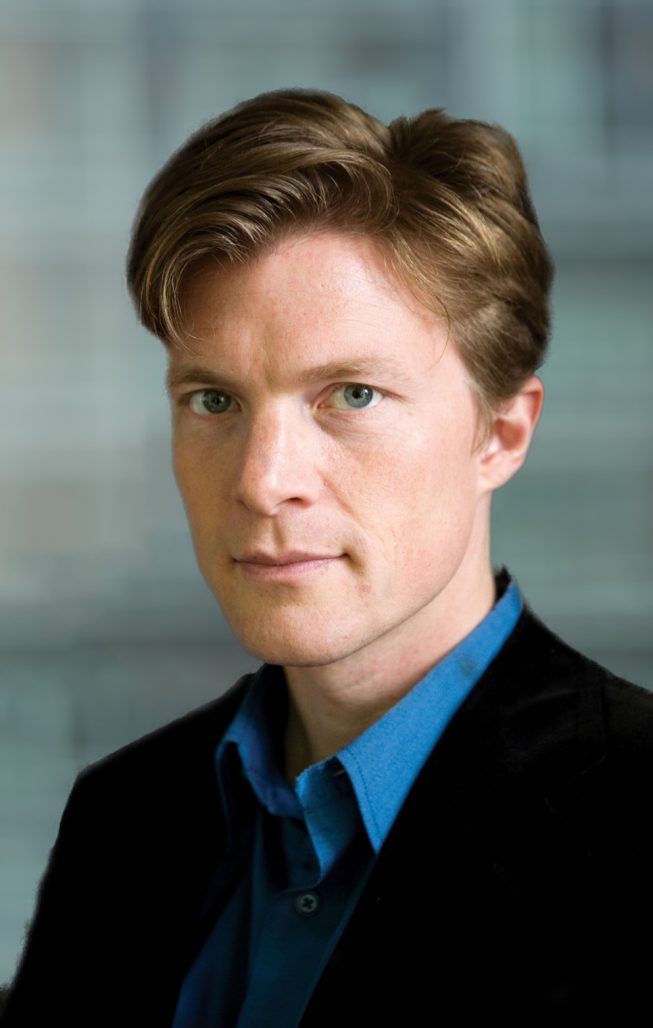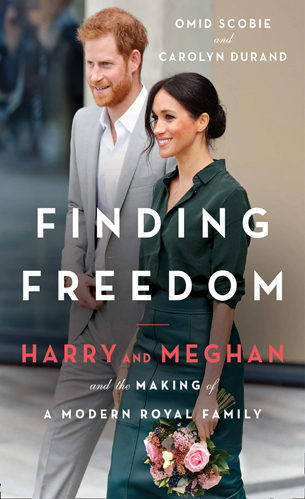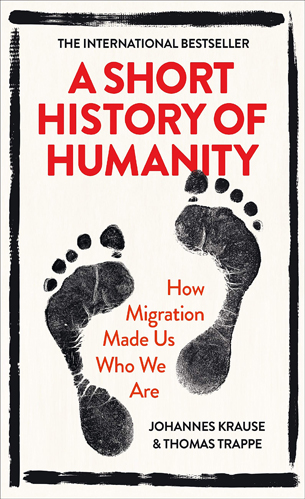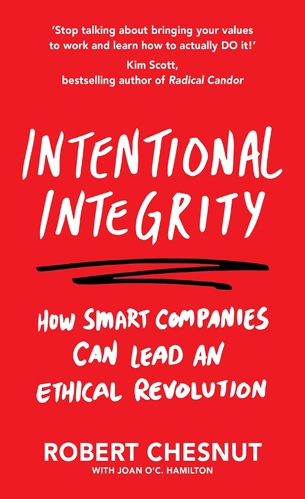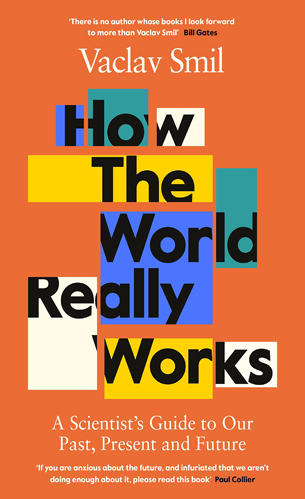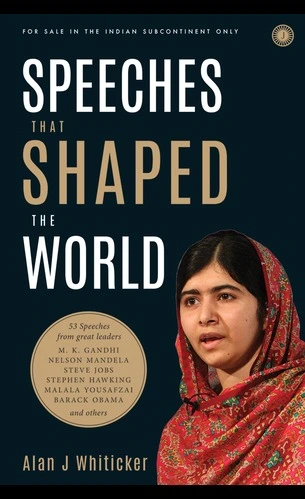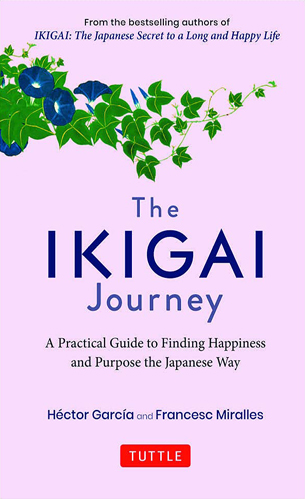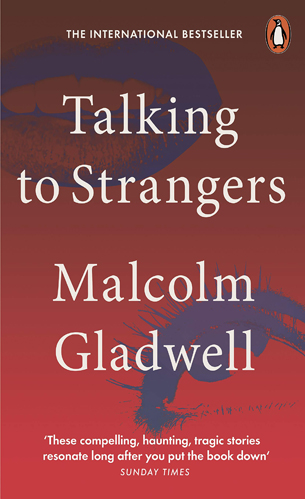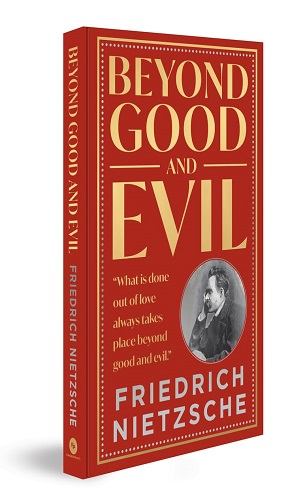Category
- Discounted Books
- English Book Bundles
- University Magazines
- சிறுவர்களுக்கான புத்தகங்கள்
- Children Books
- English Books
- Current Affairs
- Military & Intelligence
- Short Stories
- Fiction
- Poetry
- Environment & Nature
- Science
- Medicine
- Linguistics
- Atheism & Agnosticism
- (Auto)Biography & Memoir
- Business & Management
- Creativity
- Economics
- Education & Research
- Health & Nutrition
- History
- Humor
- Love & Relationships
- Parenting
- Personal Development
- Personal Finance
- Philosophy
- Politics
- War
- Psychology
- Religion & Spirituality
- Society & Culture
- Sports
- Travel & Adventure
- Technology & the Future
- True Crime
- Women Empowerment
- தமிழ் Books
- Book Bundles ( தமிழ் )
- சட்டம்
- இயற்கை
- கட்டுரை
- கணிதம்
- பயணக்குறிப்புகள்
- விவசாயம்
- அரசியல்
- ஆரோக்கியம்
- உளவியல்
- புனைவு
- காதல் மற்றும் உறவு
- சமூகவியல்
- சுயசரிதைகள் மற்றும் நினைவுகள்
- சுயமுன்னேற்றம்
- தத்துவஞானம்
- தொழில்நுட்பம் & எதிர்காலம்
- பொருளாதாரம்
- போர்
- பணம்
- மதம் & ஆன்மீகம்
- வணிகம் & மேலாண்மை
- வரலாறு
- விஞ்ஞானம் & பிரபல அறிவியல்
- விளையாட்டு
- சினிமா
- கவிதைகள்
- குழந்தை வளர்ப்பு
- குற்றம்
- மருத்துவம்
- மொழி
Product categories
- Children Books
- Discounted Books
- English Book Bundles
- English Books
- (Auto)Biography & Memoir
- Atheism & Agnosticism
- Business & Management
- Creativity
- Current Affairs
- Economics
- Education & Research
- Environment & Nature
- Fiction
- Health & Nutrition
- History
- Humor
- Linguistics
- Love & Relationships
- Medicine
- Military & Intelligence
- Parenting
- Personal Development
- Personal Finance
- Philosophy
- Poetry
- Politics
- Psychology
- Religion & Spirituality
- Science
- Short Stories
- Society & Culture
- Sports
- Technology & the Future
- Travel & Adventure
- True Crime
- War
- Women Empowerment
- University Magazines
- சிறுவர்களுக்கான புத்தகங்கள்
- தமிழ் Books
- Book Bundles ( தமிழ் )
- அரசியல்
- ஆரோக்கியம்
- இயற்கை
- உளவியல்
- கட்டுரை
- கணிதம்
- கவிதைகள்
- காதல் மற்றும் உறவு
- குற்றம்
- குழந்தை வளர்ப்பு
- சட்டம்
- சமூகவியல்
- சினிமா
- சுயசரிதைகள் மற்றும் நினைவுகள்
- சுயமுன்னேற்றம்
- தத்துவஞானம்
- தொழில்நுட்பம் & எதிர்காலம்
- பணம்
- பயணக்குறிப்புகள்
- புனைவு
- பொருளாதாரம்
- போர்
- மதம் & ஆன்மீகம்
- மருத்துவம்
- மொழி
- வணிகம் & மேலாண்மை
- வரலாறு
- விஞ்ஞானம் & பிரபல அறிவியல்
- விளையாட்டு
- விவசாயம்
Open: How Collaboration and Curiosity Shaped Humankind
Rs. 3,690.00 Original price was: Rs. 3,690.00.Rs. 2,890.00Current price is: Rs. 2,890.00.

Johan Norberg
- AN ECONOMIST BOOK OF THE YEAR
“No person or society is smart enough or wise enough or noble enough to solve the wicked problems of life by themselves. With clarity and grace, Johan Norberg reminds us that openness to things and ideas from others is the only route to well-being..” –Steven Pinker, author, Enlightenment Now
“If we are to recover from the pandemic of 2020, the world needs openness more than ever: open minds, open hearts, open communications, open markets. Johan Norberg’s superb book demonstrates, with hundreds of examples, how openness has been the key to the success of our species over 10,000 years and is the secret of prosperity and peace today.” –Matt Ridley, author, The Rational Optimist
“Johan Norberg has a great story to tell: how, throughout history, open societies have always closed down, but never for good. The tension between closed and open, between trading and tribalism drives both progress and reaction. Why are the virtues and benefits of openness always under threat? We can’t live without it, yet too often it seems that we can’t live with it either. Norberg has a powerful argument to give us insight and hope that man’s curiosity and imagination is unstoppable.” –Margaret Heffernan, author, Beyond Measure
“Norberg reminds us that every great civilization has been destroyed by the end of openness. His essential book, then, is a timely reminder that the fate of our civilization rests on a defense of openness. Strongly recommended.” –Andrew Keen, author, The Internet Is Not The Answer
Clear, colourful and convincing, marshalling evidence from a range of eras and civilisations. […] The author is often amusing as well as illuminating. ― The Economist
Norberg has a strong case and he makes it with energy and charm. A pertinent book for grumpy times. ― The Times on Progress
Out of stock
Notify me when stock available
Humanity’s embrace of openness is the key to our success. The freedom to explore and exchange – whether it’s goods, ideas or people – has led to stunning achievements in science, technology and culture.
As a result, we live at a time of unprecedented wealth and opportunity. So why are we so intent on ruining it? From Stone Age hunter-gatherers to contemporary Chinese-American relations, Open explores how across time and cultures, we have struggled with a constant tension between our yearning for co-operation and our profound need for belonging. Providing a bold new framework for understanding human history, bestselling author and thinker Johan Norberg examines why we’re often uncomfortable with openness – but also why it is essential for progress. Part sweeping history and part polemic, this urgent book makes a compelling case for why an open world with an open economy is worth fighting for more than ever.
About the Author
Johan Norberg is an author, lecturer and filmmaker. He is a senior fellow at the Cato Institute in Washington DC and his books have been translated into twenty-five languages. His book Progress was an international bestseller and an Economist book of the year. Norberg regularly writes for publications such as The Wall Street Journal, Reason and HuffPost. He spreads his time between his native Sweden and the US.
Book Specifications
Title: Open: The Story of Human Progress
Author: Johan Norberg
Language: English
Binding: Paperback
Pages: 464
Weight: 415g
Published Year: 2020
Publisher: Atlantic Books
ISBN: 1786497190
Dimensions: 12.7 x 3.56 x 17.78 cm
Print size: Please feel free to drop us a message.
Related products
-
Finding Freedom: Harry and Meghan and the Making of a Modern Royal Family
Rs. 2,990.00Original price was: Rs. 2,990.00.Rs. 2,190.00Current price is: Rs. 2,190.00.or 3 X Rs.730.00 with Read more
Read moreOmid Scobie
- INSTANT INTERNATIONAL BESTSELLER
- NEW YORK TIMES BESTSELLER
- #1 SUNDAY TIMES BESTSELLER
- ONE OF THE TOP 10 BEST-SELLING ROYAL BIOGRAPHIES OF ALL TIME
“If you’re looking for a primer to the saga of the Duke and Duchess of Sussex, this book is a good place to start.” – New York Times–
“Required reading for any modern royal family fan.” — Buzzfeed
“The definitive book about Meghan and Harry.” — The Cut
-
A Short History of Humanity: How Migration Made Us Who We Are
Rs. 2,790.00or 3 X Rs.930.00 with Read more
Read moreJohannes Krause & Thomas Trappe
A highly readable, personal guide to the twists and turns in unravelling ancient DNA: Krause and Trappe expertly unravel the story of ancient DNA to reveal how the new field of archaeogenetics has utterly transformed understanding of our deep past. ― Rebecca Wragg Sykes, author of Kindred: Neanderthal Life, Love, Death, and Art
A Short History of Humanity is an eloquent and timely reminder that viruses and other pathogens of infectious disease are merely fellow-travellers in an epic journey that began when the first human migrants left Africa around 200,000 years ago. The solution to pandemics is not to close borders in the hope of keeping viruses out but to recognise that we are a fundamentally peripatetic species united in our shared genetic inheritance and common humanity. ― Mark Honigsbaum, author of A Pandemic Century
A valuable contribution to our understanding of who we are and how we got here. ― Tim Marshall, bestselling author of Prisoners of Geography
One of those books that stops you dead in your tracks and makes you say out loud – why didn’t I know that before? So easy to read. So logically argued. So satisfyingly sensible and thought-provoking. Read it, think about it, and then read it again. An absolute revelation. ― Professor Sue Black, bestselling author of All That Remains
Extremely enriching. Rarely, have I been able to learn so much and get such radically new insights over 250 pages ― Süddeutsche Zeitung
-
Intentional Integrity: How Smart Companies Can Lead an Ethical Revolution
Rs. 2,790.00Original price was: Rs. 2,790.00.Rs. 1,990.00Current price is: Rs. 1,990.00.or 3 X Rs.663.33 with Read more
Read moreRobert Chesnut
- * An Inc. Magazine Top 10 Business Book for 2020 *
“Stop talking about bringing your values to work and learn how to actually DO it!” ―Kim Scott, author of Radical Candor
“The ethical expectation for companies is wonderfully changing from ‘do no evil’ to ‘do good.’ Companies and their leaders need to put ethics and integrity at the center of their mission and culture. Rob is an insider who’s combined doing good with doing business well in two iconic Silicon Valley companies. His book contains smart, practical advice for anyone looking to do good and do well.” ―Reid Hoffman, co-founder of LinkedIn and author of Blitzscaling
“No one has wrestled with more difficult business integrity challenges over the last 20 years than Rob. His insights will instruct you how to drive integrity into your culture. Now, more than ever, we need someone to lead a constructive, direct conversation about integrity in business―Rob delivers.” ―Meg Whitman, CEO of Quibi, former CEO of HP and eBay Inc.
“Rob and I were peers at Airbnb and together we helped build a culture and public-facing brand with integrity as a core value. Not only was the work strategically brilliant but under Rob’s leadership, it was embedded into the very heart of the company. Rob brings creativity, empathy, credibility and a great sense of humor to this important topic ― he makes ethics human and fun.” ―Jonathan Mildenhall, cofounder and CEO, TwentyFirstCenturyBrand
“Drawing on considerable experience with the nuances and circumstances of integrity violations at Airbnb, Chesnut offers plentiful examples of common integrity issues… He is especially good on such matters as enforcing consequences and handling situations involving violators who are high-performing employees. Valuable reading for companies that want to get serious about workplace ethics.” ―Kirkus Reviews
-
Culture Map : Decoding How People Think
Rs. 2,990.00or 3 X Rs.996.67 with Read more
Read moreErin Meyer
“Erin Meyer provides us with a brilliant guide to what all business leaders need to know right now: How to succeed in managing across the diverse cultural contexts of today’s workplace!”―Marshall Goldsmith, author of the New York Times and global bestseller What Got You Here Won’t Get You There
“Whether you are sitting at a desk in Boston or eating at a restaurant in Beijing, communicating across cultures is the great challenge of the global economy. Getting it right will be the difference between success and failure. Erin Meyer has written a very important book. Managers everywhere should read it.” ―Des Dearlove and Stuart Crainer, founders of the Thinkers50
“Whether you’re a corporate or traditional diplomat, global traveler, government official, or passionate world citizen, this is the one book you should not miss. Chock-full of real-world examples and a simple framework that can be utilized in any cross-cultural context, Meyer’s work is characterized by a fresh and relevant voice, distilling down the essentials of communicating, persuading and working effectively around the globe. It is rare that I pick up a cross-cultural book and can’t put it down.”―Cari Guittard, Huffington Post
-
How the World Really Works: A Scientist’s Guide to Our Past, Present and Future
Rs. 3,990.00or 3 X Rs.1,330.00 with Read more
Read moreVaclav Smil
- INSTANT NEW YORK TIMES BESTSELLER
“A new masterpiece from one of my favorite authors… [How The World Really Works] is a compelling and highly readable book that leaves readers with the fundamental grounding needed to help solve the world’s toughest challenges.”—Bill Gates
“You can agree or disagree with Smil—accept or doubt his ‘just the facts’ posture—but you probably shouldn’t ignore him. . . In Smil’s provocative but perceptive view, unrealistic notions about carbon reduction are partly, and ironically, attributable to the very productivity that societies achieved by substituting machine work, powered by fossil fuels, for draft animals and human laborers.”—The Washington Post
“A scientific panorama of our well-being and how it can be sustained in our current tumultuous times and beyond. [Smil] aims to combat the widespread “comprehension deficit” about basic scientific facts, and he seeks to “explain some of the most fundamental ruling realities governing our survival and our prosperity.” That aim is marvelously achieved…[this is] an exceptionally lucid, evenhanded study of the scientific basis of our current and future lives.”—Kirkus, STARRED review
“How the World Really Works represents the highly readable distillation of this lifetime of scholarship… Mr. Smil looks over the horizon of the future with humility and calmness, foreseeing ‘a mixture of progress and setbacks, of seemingly insurmountable difficulties and near-miraculous advances.’”—Wall Street Journal
-
Speeches that Shaped the World
Rs. 1,690.00or 3 X Rs.563.33 with Read more
Read moreAlan J. Whiticker
53 Speeches from great leaders M. K. GANDHI, NELSON MANDELA, STEVE JOBS, STEPHEN HAWKING, MALALA YOUSAFZAI, BARACK OBAMA and others. The passing of time allows many speeches to take on a deeper meaning and poignancy. Others have become an iconic part of our times.
Alan J. Whiticker’s Speeches that Shaped the World is a collection of the most potent and memorable speeches throughout history. These speeches highlight recurring themes such as politics and power, war and peace, civil rights and human rights. What they all have in common is the power to inspire—emotionally, politically and socially.In this brilliant collection, many of history’s greatest orators and pivotal moments are featured. These speeches shaped and changed the world. Different eras and many nations are represented, with several speeches from famous women—speeches of clarity and hope. Along with famous names like John F. Kennedy, Martin Luther King, Franklin D. Roosevelt, Winston Churchill, Mahatma Gandhi, Nelson Mandela, Margaret Thatcher and Hillary Clinton there are also lesser known orators who are remembered for making their mark on history.
-
The Ikigai Journey: A Practical Guide to Finding Happiness and Purpose Japanese Way
Rs. 2,490.00or 3 X Rs.830.00 with Read more
Read moreHector Garcia & Francesc Miralles
SEQUEL TO IKIGAI: THE JAPANESE SECRET TO A LONG AND HAPPY LIFE
In The Ikigai Journey, authors Hector Garcia and Francesc Miralles take their international bestseller Ikigai: the Japanese Secret to a Long and Happy Life a step further by showing you how to find your own ikigai through practical exercises, such as employing new habits and stepping outside your comfort zone.
Ikigai is the place where our passion (what we love), mission (what we hope to contribute), vocation (the gifts we have to offer the world) and profession (how our passions and talents can become a livelihood) converge, giving us a personal sense of meaning. This book helps you bring together all of these elements so that you can enjoy a balanced life.
Our ikigai is very similar to change: it is a constant that transforms depending on which phase of life we are in. Our “reason for being” is not the same at 15 as it is at 70. Through three sections, this book helps you to accept and embrace that―acting as a tool to revolutionize your future by helping you to understand the past, so you can enjoy your present.
* Section 1―Journey Through the Future: Tokyo (a symbol of modernity and innovation)
* Section 2―Journey Through the Past: Kyoto (an ancient capital moored in tradition)
* Section 3―Journey Through the Present: Ise (an ancient shrine that is destroyed and rebuilt every twenty years)Japan has one of the longest life spans in the world, and the greatest number of centenarians―many of whom cite their strong sense of ikigai as the basis for their happiness and longevity. Unlike many “self-care” practices, which require setting aside time in an increasingly busy world, the ikigai method helps you find peace and fulfillment in your busy life.
-
Talking to Strangers: What We Should Know about the People We Don’t Know
Rs. 2,990.00or 3 X Rs.996.67 with Read more
Read moreMalcolm Gladwell
A Best Book of the Year: The Financial Times, Bloomberg, Chicago Tribune, and Detroit Free Press
Goodreads Choice Award Nominee for Nonfiction (2019)
I love this book . . . reading it will actually change not just how you see strangers, but how you look at yourself, the news – the world. Reading this book changed me. ― Oprah Winfrey
Fascinating . . . you should read the book . . . He’s tackling the dark side of human nature – what do we ever know about other people? — Sathnam Sanghera ― The Times Magazine
Now that practically everybody seems to be spoiling for a fight, I have found Malcolm Gladwell’s Talking to Strangers invaluable . . . His moral – to approach new people with caution and humility – has become my motto. ― Evening Standard
Taut, provocative, smart . . . Gladwell’s cool, playful intelligence has made him one of our leading public thinkers ― New Statesman
A book examining the ways we misinterpret or fail to communicate with one another could not feel more necessary . . . the page-turning urgency of a thriller — Chris Barton ― Los Angeles Times
Superb writing. Masterful . . . bears all the marks that have made Gladwell one of the most successful non-fiction authors of his generation. — Pilita Clark ― Financial Times
A dazzling book . . . Gladwell is a rock star of nonfiction . . . ideas are slowly revealed until the reader arrives at a conclusion they didn’t expect. Gladwell is advancing ideas and, sure, they are all open to challenge . . . but they are stimulating and convincing – and you won’t regret a minute you spend mastering them ― The Times
A wonderful provocation which Gladwell delivers like no other, an awakening to just one of the fascinations that lie in ordinary human experience . . . as ever, Gladwell’s genius is in the telling. ― Spectator
Malcolm Gladwell made his name bringing intellectual sparkle to everyday subjects, and his new book – about how strangers talk to each other – is no exception. — Sean O’Hagan ― Observer
-
Guns, Germs, and Steel: The Fates of Human Societies
Rs. 2,990.00or 3 X Rs.996.67 with Read more
Read moreJared Diamond
- New York Times Bestseller
- Pulitzer Prize for General Nonfiction (1998)
- Royal Society Science Book Prize for General Prize (1998)
- California Book Award for Nonfiction (Gold) (1997)
- Puddly Award for History (2001)
- Phi Beta Kappa Award in Science (1997)
‘A book of big questions, and big answers‘ Yuval Noah Harari, bestselling author of Sapiens
“Artful, informative, and delightful…. There is nothing like a radically new angle of vision for bringing out unsuspected dimensions of a subject, and that is what Jared Diamond has done.” ― William H. McNeil, New York Review of Books
“An ambitious, highly important book.” ― James Shreeve, New York Times Book Review
“A book of remarkable scope, a history of the world in less than 500 pages which succeeds admirably, where so many others have failed, in analyzing some of the basic workings of culture process…. One of the most important and readable works on the human past published in recent years.” ― Colin Renfrew, Nature
“The scope and the explanatory power of this book are astounding.”
― The New Yorker“No scientist brings more experience from the laboratory and field, none thinks more deeply about social issues or addresses them with greater clarity, than Jared Diamond as illustrated by Guns, Germs, and Steel. In this remarkably readable book he shows how history and biology can enrich one another to produce a deeper understanding of the human condition.” ― Edward O. Wilson, Pellegrino University Professor, Harvard University
“Serious, groundbreaking biological studies of human history only seem to come along once every generation or so. . . . Now [Guns, Germs, and Steel] must be added to their select number. . . . Diamond meshes technological mastery with historical sweep, anecdotal delight with broad conceptual vision, and command of sources with creative leaps. No finer work of its kind has been published this year, or for many past.” ― Martin Sieff, Washington Times
“[Diamond] is broadly erudite, writes in a style that pleasantly expresses scientific concepts in vernacular American English, and deals almost exclusively in questions that should interest everyone concerned about how humanity has developed. . . . [He] has done us all a great favor by supplying a rock-solid alternative to the racist answer. . . . A wonderfully interesting book.” ― Alfred W. Crosby, Los Angeles Times
“An epochal work. Diamond has written a summary of human history that can be accounted, for the time being, as Darwinian in its authority.” ― Thomas M. Disch, The New Leader
-
Beyond Good And Evil (Deluxe Hardbound Edition)
Rs. 2,690.00or 3 X Rs.896.67 with Read more
Read moreFriedrich Nietzsche
Beyond Good and Evil: Prelude to a Philosophy of the Future is a book by philosopher Friedrich Nietzsche, first published in 1886. It draws on and expands the ideas of his previous work, Thus Spoke Zarathustra, but with a more critical and polemical approach. In Beyond Good and Evil, Nietzsche accuses past philosophers of lacking critical sense and blindly accepting dogmatic premises in their consideration of morality. Specifically, he accuses them of founding grand metaphysical systems upon the faith that the good man is the opposite of the evil man, rather than just a different expression of the same basic impulses that find more direct expression in the evil man. The work moves into the realm “beyond good and evil” in the sense of leaving behind the traditional morality which Nietzsche subjects to a destructive critique in favour of what he regards as an affirmative approach that fearlessly confronts the perspectival nature of knowledge and the perilous condition of the modern individual.

